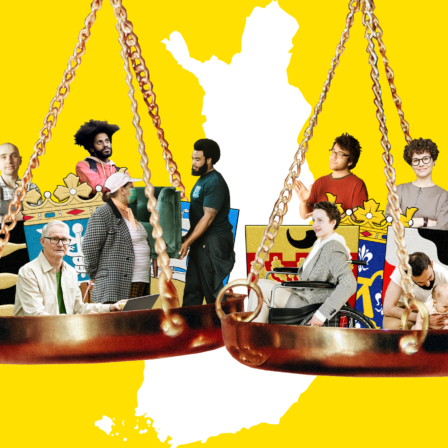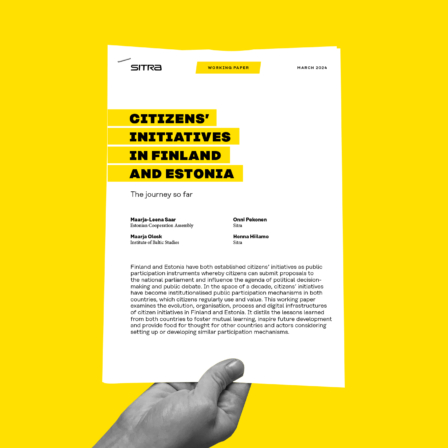Prime Minister Petteri Orpo’s Government Programme has been analysed from many angles, but less attention has been paid to the programme’s content on democracy.
The new Government Programme recognises the need for the continuous development of democracy, the most important goal being the commitment to implement the National Democracy Programme. This programme pledges to increase voter turnout and strengthen the participation of children and young people. Improving the proportionality of the electoral system is also mentioned as an additional aim.
Perhaps the most promising elements in terms of the development of democracy concern the regional and local level, where the greatest transformation is taking place. The importance of democracy is highlighted as concrete attracting and retaining factors.
Relying on democracy at the local level, the government will accelerate a controlled transition to a more creative and dynamic form of municipal government to ensure grass-roots democracy. Similarly, there is an emphasis on the importance of developing democracy within the wellbeing services counties, given that these form a new level of regional administration in Finland.
Our slow representative decision-making system is on a collision course with the fast-moving digital world.
These aims may be feasible and smart, but as we have often identified in our work and studies promoting democracy, repairing the old systems is no longer enough.
Our slow representative decision-making system is on a collision course with the fast-moving digital world. This is reflected in the deconstructive discussion culture and also in people’s behaviour, which is clearly more individualistic than before. An increasing proportion of the general public would like to have a direct influence, and not through political movements, organisations or interest groups.
The erosion of confidence in the ability of political parties to take the opinions and needs of members of the public into account and the decreasing number of party members are also signs of this global trend (Sitra survey 2020, in Finnish). In other words, the gap between people’s expectations and what representative institutions can actually achieve, as well as when, is widening.
In order to strengthen the acceptability of our representative democracy among people of different ages, we also need new forms of participation, also called democratic innovations, in addition to traditional ways of influencing.
The only specific references in the Government Programme to the development of democratic innovations are the lowering of the age limit for signing a European Citizens’ Initiative to 16 years and the reference to parliament discussing the development of other initiative and consultation processes.
The programme has also identified the need to reform the drafting of legislation in order to ensure both the steering of society and the legal protection of people and companies. During the parliamentary term, the government will improve the openness and transparency of legal drafting by making the monitoring of the whole process more open.
In addition to acceptability, our democracy needs inspiration, that is, practically robust corrective measures to improve social participation. Compared to the other Nordic countries, the proportion of people in Finland who believe that they understand politics or have an influence is worryingly small, as illustrated by the OECD’s trust survey on Finland.
The Government Programme also recognises the causes for concern in Finnish democracy when it states that “The Government will strengthen democracy, participation and trust in society … We will examine new ways to foster these fundamental values with an open mind”. An open mind is what is needed now, so that reform will not slow down.

















Recommended
Have some more.